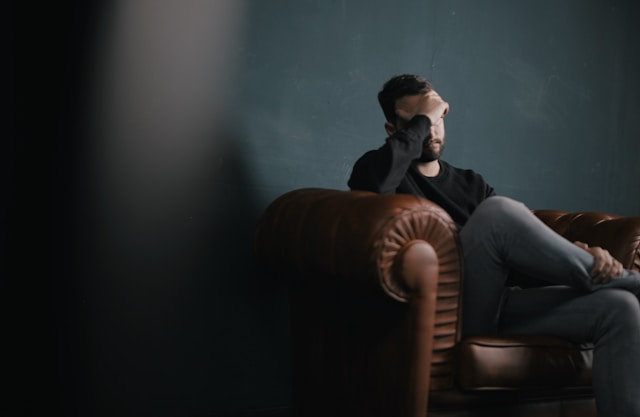Anxiety has become a common companion for many, impacting daily life and overall well-being. Recognizing and addressing anxiety is the first step toward a healthier mental state. This guide aims to provide practical and effective strategies for managing anxiety.
With a focus on understanding triggers, incorporating self-care practices, and seeking professional support when needed, these guidelines are designed to offer relief and empower individuals to lead a more balanced, anxiety-free life.
Understanding Anxiety
Anxiety is more than just feeling stressed or worried. It is a pervasive condition that can cause significant impairment in daily life. Understanding the various forms that anxiety can take, such as generalized anxiety disorder, social anxiety, or panic attacks, is crucial. This knowledge can demystify experiences of anxiety, making it easier to identify and address.
Educating yourself about anxiety is the first step in managing it effectively. Reading reputable sources, attending workshops, or even participating in online forums can provide valuable insights.
Awareness of the condition’s complexities enables individuals to recognize symptoms early and seek appropriate interventions. From premium flower CBD options to therapy, a range of solutions can help alleviate anxiety symptoms. The key is finding what works best for each individual.
Identifying Triggers
Identifying what triggers your anxiety is an essential step in managing it. Triggers can be external, like a stressful work environment, or internal, such as a tendency to overthink. Keeping a journal can be a practical approach to tracking these triggers and understanding patterns in anxiety episodes.
Once triggers are identified, developing coping strategies specific to those triggers can significantly reduce anxiety’s impact. It might involve preparing for predictable stressors ahead of time or practicing mindfulness to manage unexpected anxiety spikes.
Implementing Self-Care Practices
Incorporating self-care into your daily routine can play a significant role in managing anxiety. Self-care practices vary widely among individuals, ranging from physical activities like yoga and meditation to creative outlets like painting or writing. The key is to choose activities that bring joy and relaxation.
Equally important is establishing a healthy routine, including sufficient sleep, a balanced diet, and regular physical activity. These fundamental health practices lay the groundwork for effective anxiety management, providing both physical and psychological benefits.
Seeking Professional Support
There is great strength in recognizing when help is needed. For many dealing with anxiety, professional support from a therapist or counselor can be life-changing. These professionals provide a safe space to explore the roots of anxiety and develop personalized strategies for coping.
Additionally, medication may be a viable option for some individuals, and a healthcare provider can offer guidance on this. It’s important to remember that seeking help is a sign of self-awareness and courage, not weakness.
Building a Support Network
Creating a support network of friends, family, and possibly others who understand what you’re going through can be incredibly comforting. Sharing experiences and coping strategies within a trusted circle can significantly alleviate the sense of isolation that often accompanies anxiety.
Engaging in community support groups, whether online or in person, can also provide additional layers of understanding and empathy. Knowing you’re not alone in your struggles can be a powerful reminder during challenging times.
Practicing Mindfulness and Relaxation Techniques
Mindfulness and relaxation techniques have been shown to effectively reduce anxiety. Practices such as deep breathing, progressive muscle relaxation, and mindfulness meditation can help calm the mind and reduce overall stress levels.
Regular practice is key to reaping the benefits of these techniques. Even dedicating as little as 10 minutes a day to a relaxation practice can make a substantial difference in managing anxiety symptoms. The objective is to cultivate a sense of inner peace and resilience that can help withstand life’s stresses.
Exploring Alternative Therapies
Beyond conventional therapy and medication, there are numerous alternative therapies that may offer relief from anxiety. Techniques such as acupuncture, aromatherapy, and herbal supplements have gained popularity for their potential to reduce stress and improve mental health.
It’s essential, however, to approach these alternatives with caution and seek advice from healthcare professionals before incorporating them into your routine. Research and personal testimonials suggest that these methods when combined with traditional treatments, can provide a complementary approach to managing anxiety.

Managing anxiety requires patience, self-compassion, and a willingness to try different approaches.
By understanding the condition, identifying triggers, incorporating self-care practices, seeking professional support when needed, building a support network, practicing mindfulness and relaxation techniques, and exploring alternative therapies, individuals can take control of their anxiety and lead a more fulfilling life.
Remember that there is no one-size-fits-all solution, and finding what works for you is the key to managing anxiety effectively. With determination and support, it is possible to overcome anxiety and embrace a life of balance and well-being.
So keep exploring, trying new things, and never give up on yourself. You are capable of managing your anxiety and living a fulfilling life.